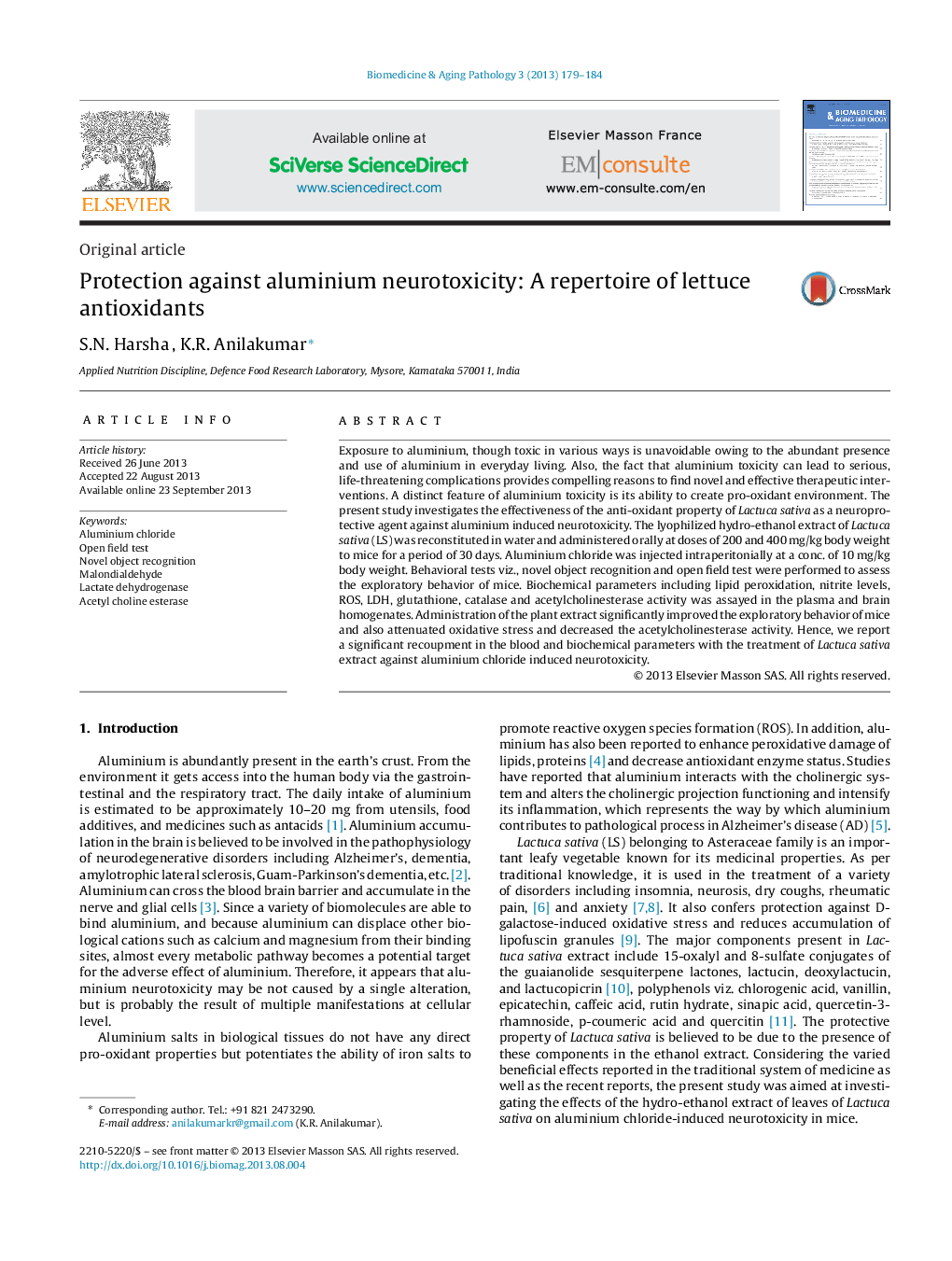| Article ID | Journal | Published Year | Pages | File Type |
|---|---|---|---|---|
| 2576245 | Biomedicine & Aging Pathology | 2013 | 6 Pages |
Exposure to aluminium, though toxic in various ways is unavoidable owing to the abundant presence and use of aluminium in everyday living. Also, the fact that aluminium toxicity can lead to serious, life-threatening complications provides compelling reasons to find novel and effective therapeutic interventions. A distinct feature of aluminium toxicity is its ability to create pro-oxidant environment. The present study investigates the effectiveness of the anti-oxidant property of Lactuca sativa as a neuroprotective agent against aluminium induced neurotoxicity. The lyophilized hydro-ethanol extract of Lactuca sativa (LS) was reconstituted in water and administered orally at doses of 200 and 400 mg/kg body weight to mice for a period of 30 days. Aluminium chloride was injected intraperitonially at a conc. of 10 mg/kg body weight. Behavioral tests viz., novel object recognition and open field test were performed to assess the exploratory behavior of mice. Biochemical parameters including lipid peroxidation, nitrite levels, ROS, LDH, glutathione, catalase and acetylcholinesterase activity was assayed in the plasma and brain homogenates. Administration of the plant extract significantly improved the exploratory behavior of mice and also attenuated oxidative stress and decreased the acetylcholinesterase activity. Hence, we report a significant recoupment in the blood and biochemical parameters with the treatment of Lactuca sativa extract against aluminium chloride induced neurotoxicity.
